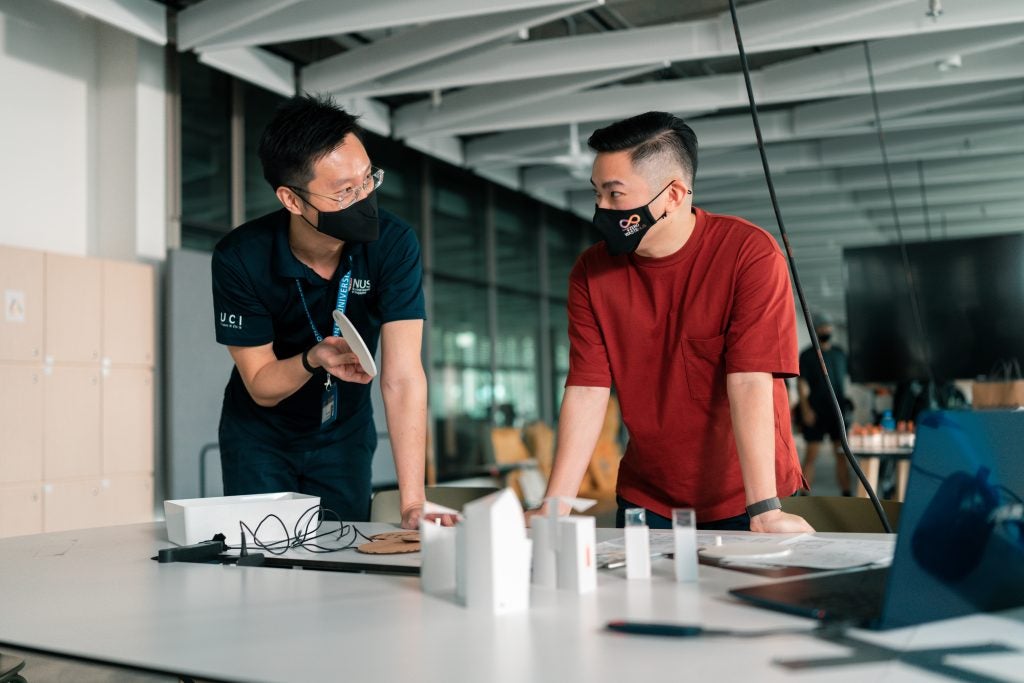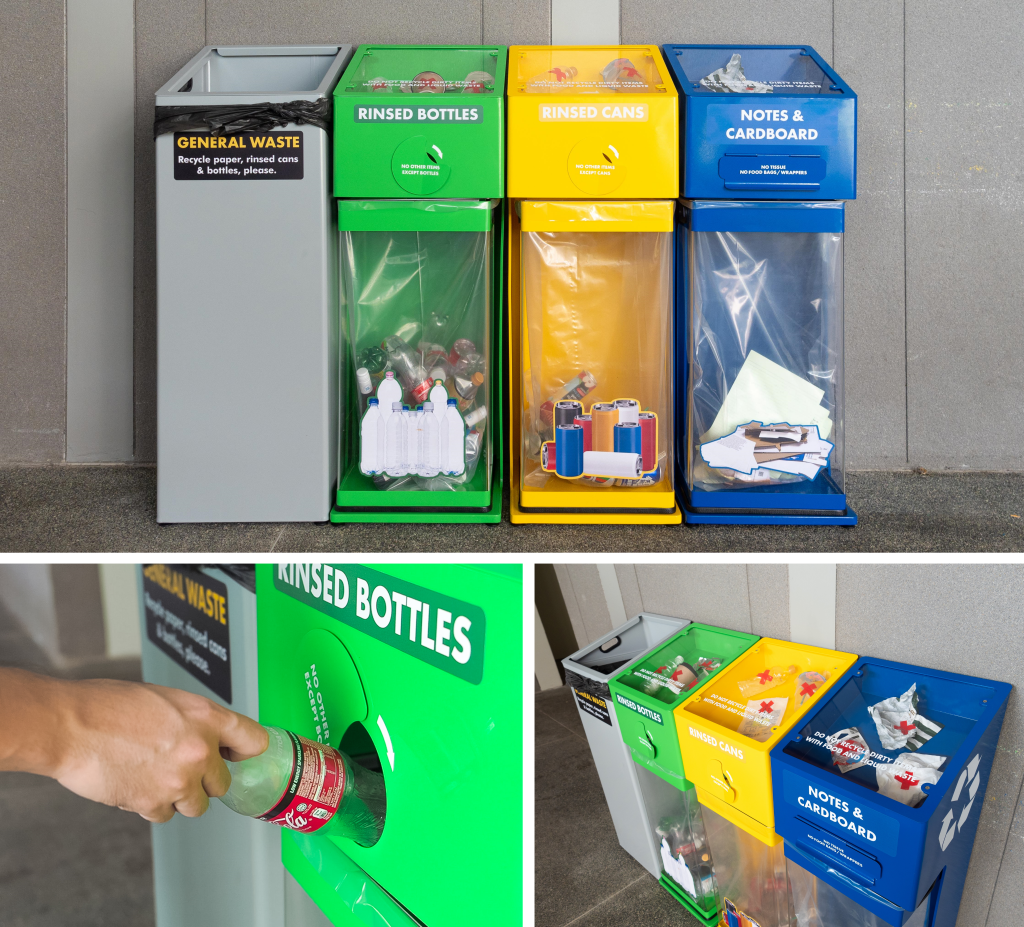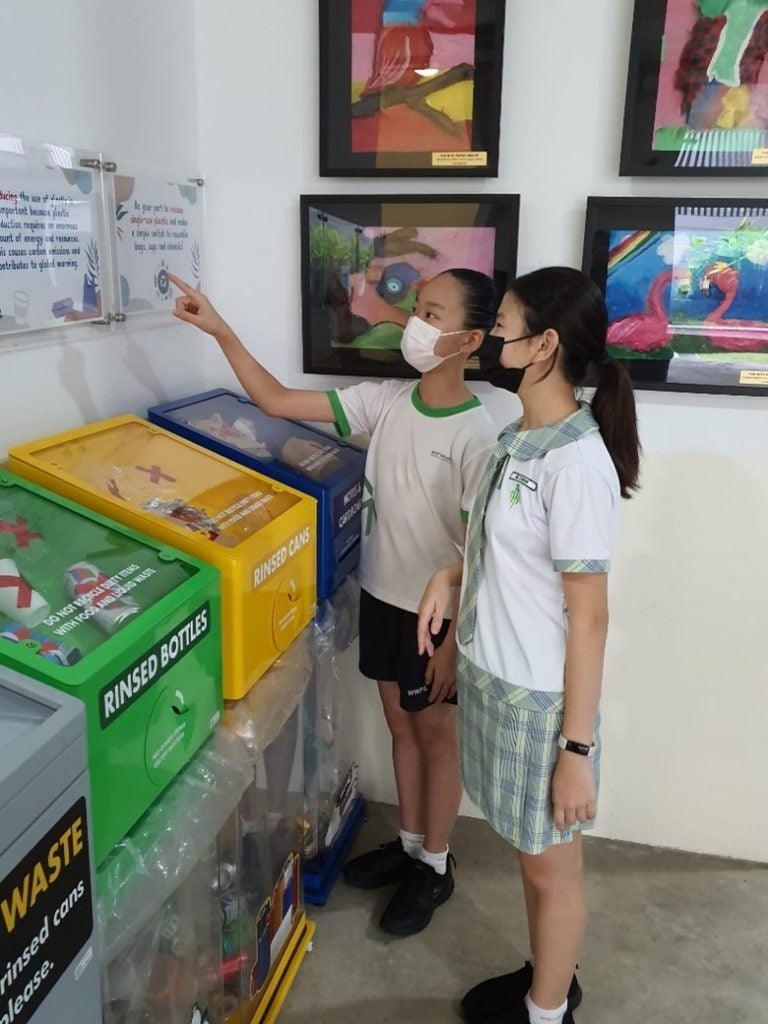The NUS Zero Waste Taskforce (ZWT) partnered Mr Tommy Cheong (NUS Industrial Design, Class of 2020) to develop and test a new recycling bin design to get people to recycle right as part of his Final Year Project (FYP).

This bin design was developed based on insights gathered from interviewing users and prototyping initial designs with the support from South West Community Development Council (South West CDC) and OTTO Waste Systems Pte Ltd for their inputs.

The sleek “Recycle Right” bin design features a clear display with real non-recyclables that highlights what should not be placed inside the recycling bins, a slidable opening lid that adds friction to reduce mindless throwing of non-recyclables and a transparent bin body that showcases the accumulated clean recyclables.
The bin design was effective in getting people within campus to recycle right – contamination rate of the plastic bottle recycling bins had reduced by more than half, from 60% to 27%, based on a contamination study done in University Town. The bins are currently available campus wide to build a social norm of careful waste sorting and reduce contamination.
Watch Tommy Cheong share his story in the video below.
Production by NUS Office of University Communications
“I’m grateful for the collaborative efforts with NEA and the malls (Lendlease & CapitaLand) with this recycling pilot to trial the Recycle Right Bins, and to be able to provide the operational guide for efficient implementation and maintenance of this bin system. It is encouraging to see that there have been significant improvements in recycling rates and contamination reduction not just on the NUS campus, but at the public malls as well.”
– Mr Tommy Cheong
Recycling right beyond campus

To test the bins in public spaces beyond the campus, NUS ZWT had collaborated with the National Environment Agency (NEA), Lendlease and CapitaLand to conduct a behavioural experiment to test the bins in JEM and IMM. The experiment was conducted in the period 2021 to early 2022, observing over 7,000 disposal behaviours during peak hours. This was the first time that the bins were placed in a non-campus setting.
The bin design showed to be effective in getting people to recycle right – contamination rate of the plastic bottle recycling bins had similarly reduced by more than half, from 79% to 29%. The amount of items recycled remained similar, while the amount of non-recyclables in recycling bins decreased. This suggested that users were recycling better, without recycling less.

Schools like Westwood Primary School have also implemented the bins.
“The introduction of the Recycle Right bins at Westwood Primary School is part of our continued drive to engage and educate our pupils not just on the importance of recycling but recycling it right. As a stalwart in Environmental Education, Westwood Primary School has successfully integrated its well-known Positive Education with its Environmental Education programmes. For example, our pupils learn values such as resilience and gratitude while recycling and the recyclables from the Recycle Right bins are sold and the proceeds donated to conservation efforts spearheaded by various NGOs.”
-Mrs Enda Chan, Subject Head, Environmental Education.
Interested to have the bins on your premises? Contact us at campus_sustainability@nus.edu.sg
Read more about NUS Recycle Right Bins via mothership.sg and SchoolBag


